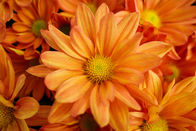Dominican Street Talk: A Guide to Dominican Slang
- Spanish Online Lessons

- Mar 21, 2024
- 3 min read

Hey there, Super Learners!
Get ready to dive headfirst into the colorful world of Dominican Street Talk! Today, we're spicing things up by exploring the vibrant vernacular of the Dominican Republic. Learning slang is a key step to sounding like a native and truly understanding the local culture. After all, language is not just about grammar and vocabulary; it's about connecting with people on their wavelength.
Before we hit the streets of Santo Domingo with our words, a quick reminder: don't forget to subscribe to our newsletter! Join the ranks of the savvy language learners who are absorbing Spanish splendor every day through our emails. It's time to turbocharge your Spanish with our daily linguistic fuel!
Aprender Español Online: Dominican Slang Unleashed
An Exciting Dominican Spanish Class for Everyone
Whether you're a beginner or an advanced speaker, our Dominican Spanish class promises to be a riot of fun and learning! You'll laugh, you'll learn, and before you know it, you'll be slinging slang with the best of them, all while gaining tremendous confidence in your Spanish skills.
And hey, don't miss out on our YouTube channel for Spanish learners of all stripes: Spanish Super Tutor on YouTube. Plus, our Spotify podcast is perfect for those starting from scratch or wanting to add some Dominican flare to their Español: Learn Spanish with Spanish Super Tutor.
Classes are available every day with our team of qualified, diverse-accented teachers. This will ensure you get the full spectrum of the Spanish language and become an ace in understanding different dialects.
Dominican Slang: The Key to Street Cred
Dominican Spanish is full of unique expressions that you won't find in your standard Spanish textbook. Here are some examples to get you started:
Vaina - This word can mean "thing" or "stuff" and is used in various contexts. Example: "Esa vaina está bien hecha." (That thing is well made.)
Qué lo qué - A casual greeting, akin to "What's up?" Example: "¡Hey, amigo! ¿Qué lo qué?" (Hey, friend! What's up?)
Guagua - In the Dominican Republic, this word refers to a bus. Example: "Vamos a tomar la guagua para ir a la playa." (Let's take the bus to go to the beach.)
Tiguere - Means a street-smart person or someone who's cunning. Example: "Ese tipo es un tiguere, siempre sabe cómo conseguir lo que quiere." (That guy is street-smart; he always knows how to get what he wants.)
Why Slang Matters
Slang keeps your Spanish fresh and relevant. It helps you connect with locals and shows that you're not just a textbook speaker but someone who appreciates the nuances of their language and culture.
Putting Dominican Slang into Practice
Try using these slang words next time you're chatting with a Dominican friend or when you're practicing your Spanish. It'll bring a smile to their face and show that you're in the know.
As we wrap up this vibrant journey through Dominican slang, let's remember our parting words:
"Si estás buscando clases online de español en internet puedes encontrar muchas pero si lo que quieres es aprender español, Spanish Super Tutor."(If you're looking for online Spanish classes on the internet, you can find many, but if you want to learn Spanish, Spanish Super Tutor.)
Miguel Marina(The Spanish Super Tutor)
Keywords and Hashtags to Remember
Nos vemos, Super Learners! Keep your Spanish sizzling and your slang sharp!














Comments